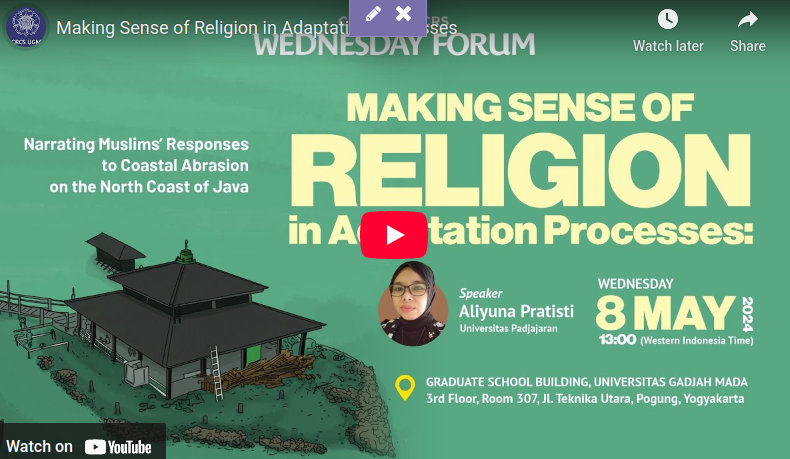
Making Sense of Religion in Adaptation Processes: Narrating Muslims’ Responses to Coastal Abrasion on the North Coast of Java
This study discusses religious dimensions in environmental adaptation processes of two Muslim communities on the northern coast of Java. By focusing on the North Coast of Java cases, this study aims to explore the interaction of religion and adaptation from Muslims’ perspectives. Two Muslim communities were selected as both have experienced coastal abrasion and feature religious dimension in their adaptive strategies. Findings show that religious dimension contributes significantly to environmental adaptation processes. The interactions, however, indicate both positive and negative ways in affecting the adapting communities. Findings also show that the interaction between experiences of coastal abrasion, local history, and Islamic beliefs, have shaped narratives of coastal adaptation specific to Muslim communities on the northern coast of Java.
Aliyuna Pratisti, is a lecturer and independent writer. She teaches at the Department of International Relations, Universitas Padjadjaran. In early 2024, she completed her doctoral degree at the Consortium for Indonesian Religious Studies, Universitas Gadjah Mada. Her academic work focuses on identity studies and recently published several articles on religious dimension in coastal adaptation processed based on her dissertation.
